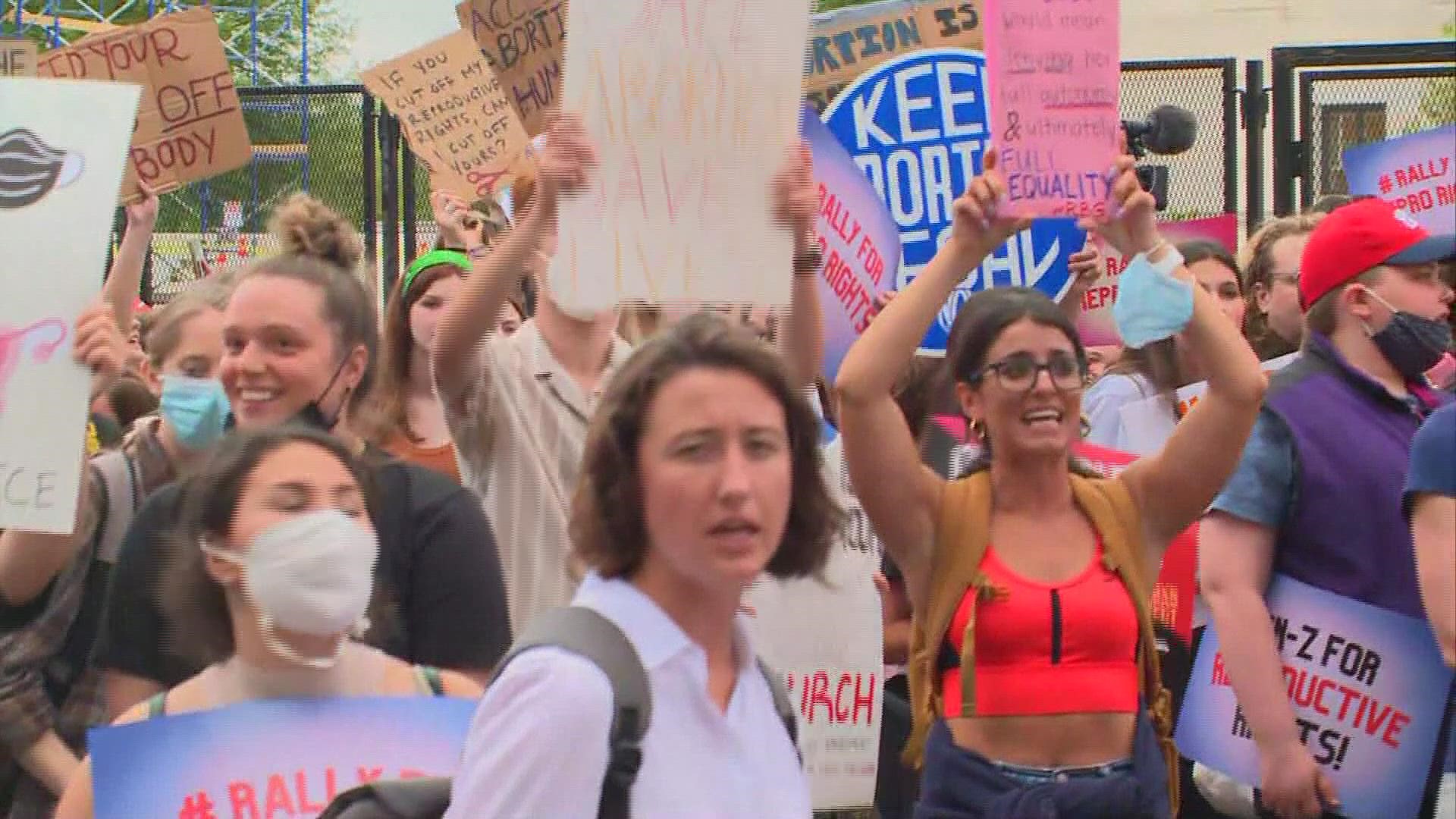WASHINGTON — EDITOR’S NOTE: The U.S. Supreme Court has now effectively overturned Roe v. Wade in a June 24 opinion. This story was originally published May 12, 2022. The information in this story is based on the draft opinion leaked to Politico in May.
As of now, Roe V. Wade remains the law of the land, ensuring that abortion is a right for people across the country. But following a leaked draft opinion from the Supreme Court, the landmark case's future remains unclear, prompting many to imagine a 'post-Roe' world.
Some legal scholars are now predicting that conflicts between states will become the norm, as many pro-life states could attempt to ban their citizens from getting an abortion across state lines.
QUESTION:
Can states physically block patients from crossing state lines to get an abortion?
SOURCES:
- Lawrence O. Gostin, University Professor at the Georgetown Law Center
- Greer Donley, Assistant Professor of Law at the University of Pittsburg School of Law
- Rachel Rebouché, Interim Dean and Professor of Law at Temple University's Beasley School of Law
- "The New Abortion Battleground", Legal Report from David S. Cohen, Greer Donley, and Rachel Rebouché.
ANSWER:
No. A state can not physically block a woman from crossing the border to get an abortion. However, it is possible for states to enact policies, to attempt to penalize such behavior.
That could be through legislation to punish providers, those who "aid and abet", and even the patient. Whether these actions will be enforceable or even constitutional will be a big question moving forward, according to legal scholars.
WHAT WE KNOW:
If Roe V. Wade were to be overturned, abortion rules would immediately be left to the states. This would lead to a patchwork of laws, with major differences between 'red states' and 'blue states.'
In a new legal paper discussing this subject, a trio of legal scholars, write about the possible consequences.
"Overturning Roe and Casey will create a novel world of complicated, interjurisdictional legal conflicts over abortion," the paper read.
Lawrence O. Gostin, a professor at The Georgetown Law Center, said that states would not be able to physically block patients at the border.
"No state can prevent somebody from going into another state or back into your own state," he said. "The only one that can regulate interstate travel and commerce is the U.S. Congress itself."
However, in a post-Roe world, states would be free to enact legislation that could attempt to levy penalties on those involved with an out-of-state abortion.
"They can't physically stop them perhaps, but they can create liability for someone who is going to help someone do that," said Greer Donley from the University of Pittsburgh School of Law.
One approach these legislatures could take, is to try and target out-of-state providers, either through civil lawsuits, or criminal charges. It's unclear how these cases would be resolved if the home state did not cooperate with extradition.
"Interstate conflict is going to be a feature," said Rachel Rebouché. "Not a bug."
These states could also attempt to levy charges against those who "aid and abet" in an abortion, including perhaps those who drive the patient across borders.
A state could even decide to penalize the patient themselves when they return from getting an abortion out of state.
"There are going to be laws enacted that will criminalize the act of going into another state and getting an abortion and then coming back," said Gostin. "And the woman who did that and anybody who helped her would be in legal jeopardy."
Our experts emphasized that these legal issues are unsettled, and the constitutionality will certainly be tested in the years to come.
"It's not a very well-developed area of law," said Rebouché. "It's certainly never been tested in regard to abortion. And it's certainly never been tested in regard to abortion when there's no constitutional right to abortion. So it's unsettled. And ultimately, the arbiter might be the Supreme Court."

